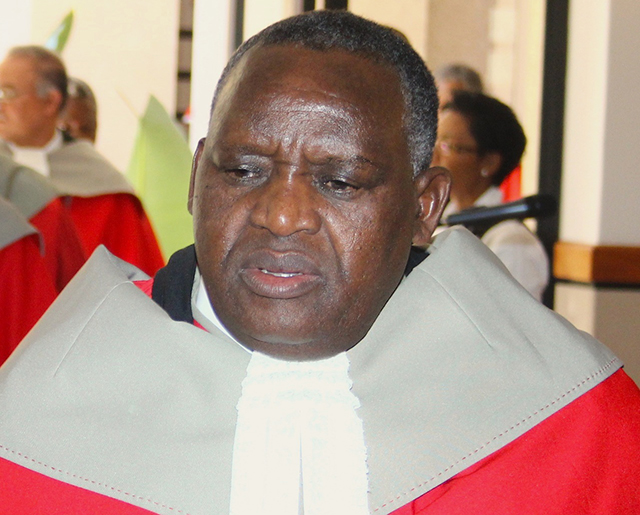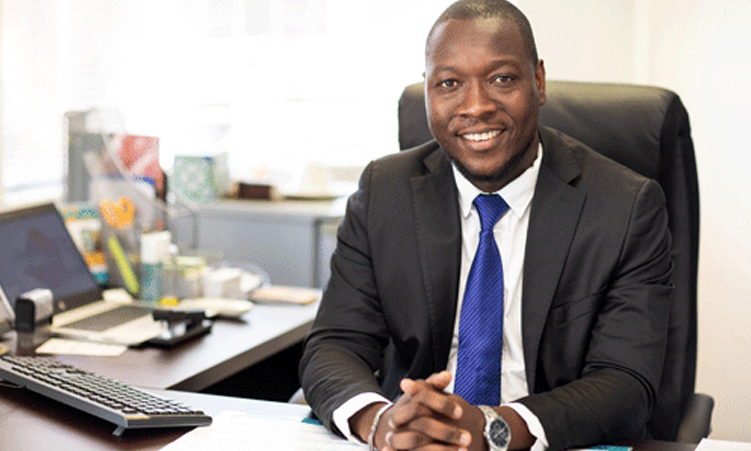SEVERAL criminal trials that have been stalled in the Windhoek Regional Court for more than two years can now continue again, after the Supreme Court set aside two magistrates’ decisions to step down from four partly heard trials.
In a judgement delivered in the Supreme Court on Friday, judge of appeal Sylvester Mainga said he had sympathy with the two magistrates who decided to recuse themselves from four partly heard trials in the Windhoek Regional Court in August 2016 and he understood their frustrations – but also commented that they were lucky not to have been charged with misconduct after deciding to step down from the four trials.
“The conduct of the learned magistrates cannot be countenanced in any way,” judge Mainga said. “It was wrong, and it is condemned. No judicial officer should attempt to do something of that sort. It is sheer insubordination of great magnitude. They are very lucky to have escaped without misconduct charges.”
Judge Mainga made the remarks in an appeal judgement on a review judgement that was delivered in the Windhoek High Court in September 2016. In the review judgement, judges Alfred Siboleka and Dinnah Usiku confirmed the decisions of magistrates Uaatjo Uanivi and Johannes Shuuveni to recuse themselves from four trials that were in progress before them because they were dissatisfied with the Magistrates Commission’s stance that they did not qualify to be appointed as full-time regional court magistrates.
Uanivi and Shuuveni were both acting as regional court magistrates when their unhappiness with the Magistrates Commission’s stance that they did not meet the requirements to be appointed as full-time regional court magistrates prompted them to recuse themselves from trials over which they were presiding at that stage.
Judge Mainga noted that, after the Magistrates Act of 2003 was amended in 2014, the then minister of justice announced in a notice in the Government Gazette in July 2015 that only persons with bachelor’s degrees in law (LLB or B Proc) or master’s degrees in law from three specific universities in Cuba, or a master’s or doctorate degree in law from the University of Bucharest in Rumania qualified to be appointed as a magistrate in Namibia from then on.
While the two magistrates did not meet those requirements – although Uanivi has a master’s degree in law, specialising in criminal justice, from the University of Namibia – there was no issue about their impartiality or competence before they decided out of their own to recuse themselves from the regional court cases they were dealing with, judge Mainga noted.
He found that the factual background on which the two magistrates based their decisions to recuse themselves fell far short of what was needed for them to take such a step.
He also commented that judicial officers cannot decide to recuse themselves based on their “predilections, preconceived, unreasonable personal views, or ill-informed apprehensions”.
Judge Mainga added: “To do so would be to cast the administration of justice in anarchy, where judicial officers would be at liberty to make choices of which cases to preside over and which not, or applicants to go on a judge forum shopping, hoping to get the one who might be favourable to their cases.”
With deputy chief justice Petrus Damaseb and acting judge of appeal Theo Frank agreeing, Judge Mainga set aside the magistrates’ recusal, and ordered that the party heard trials before them should continue “with deliberate speed”.
The state was represented by Ed Marondedze when the appeal was heard on 6 March.
Stay informed with The Namibian – your source for credible journalism. Get in-depth reporting and opinions for
only N$85 a month. Invest in journalism, invest in democracy –
Subscribe Now!










